42 foods you should NEVER keep in the fridge
Better off in the cupboard

Nitr/Shutterstock
Your fridge may seem like the obvious place to store foods to ensure they stay fresher for longer; however, for some ingredients, it isn't always the best option. Here we reveal the foods that aren't made for colder temperatures and that can actually be harmed by being kept in the fridge – from peanut butter and pears to certain types of cheese (yes, really).
Read through our gallery to discover 42 foods that you should avoid refrigerating at all costs.
Aged cheeses

sweet marshmallow/Shutterstock
While it’s common to find all styles of cheese in the chilled section at the supermarket these days, hard, aged cheeses can actually fare better elsewhere. From Cheddar to Gouda, these cheeses date back centuries (well before the first household fridges appeared) and can last for long periods of time if stored in an airtight container in a cool, dark place.
Aubergines
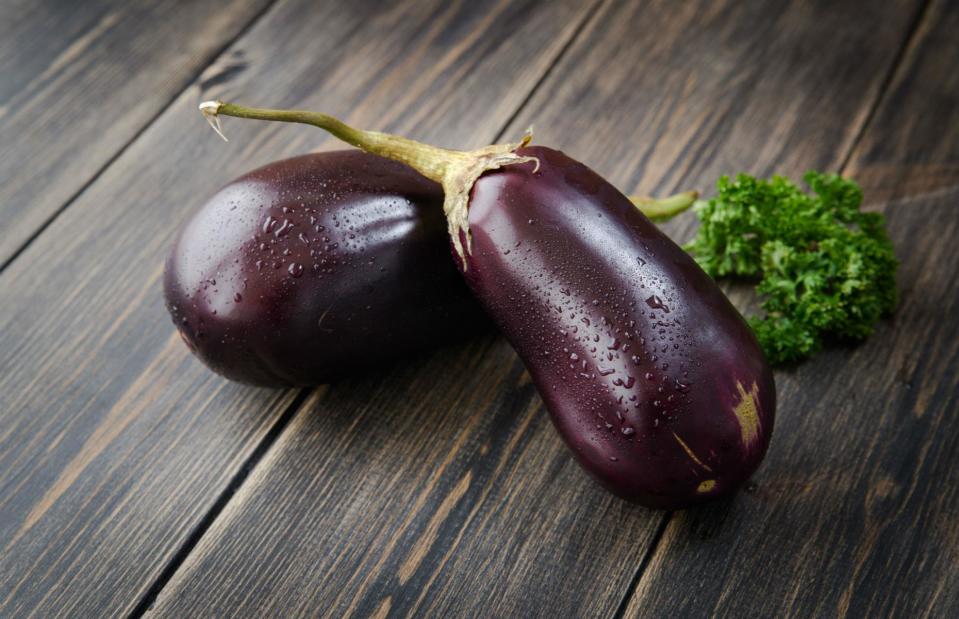
Drakonyashka/Shutterstock
Aubergines don’t need to be kept in the fridge – but be careful not to leave them somewhere too warm or store them for too long after buying, or they'll shrivel up. It’s important to find a happy medium if you want to get the best from this ingredient; keep your aubergines in a cool, dark place away from direct sunlight until you’re ready to cook them.
Avocados
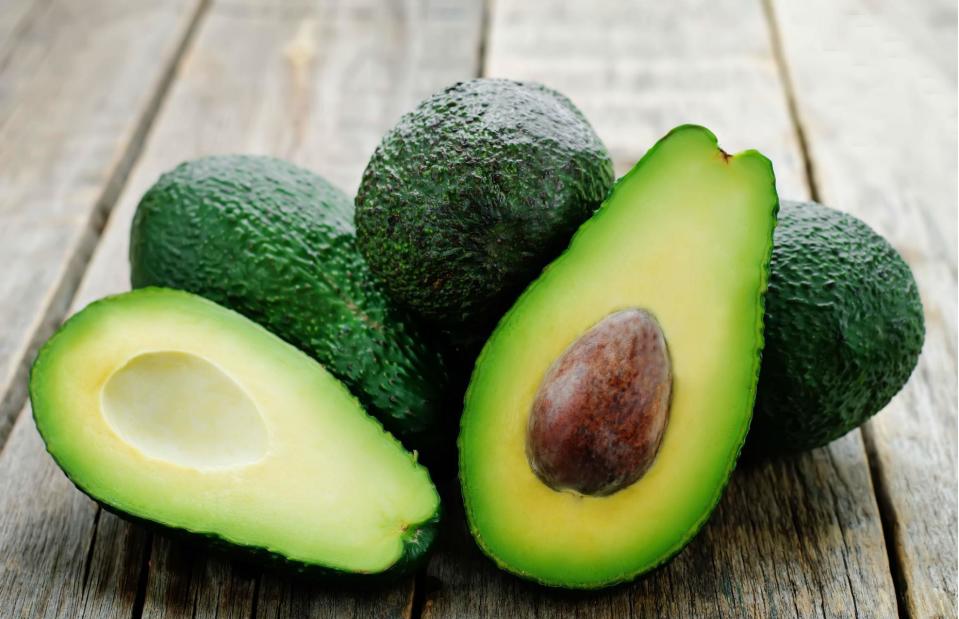
Nataliya Arzamasova/Shutterstock
Avocados that need ripening should be kept well away from the fridge for four to seven days. Chilling them will prolong their ripening process and can actually cause them to go off more quickly. If they're already ripe on purchase (or if you've ripened them at home), avocados can stay in the fridge until you want to eat them.
Bananas
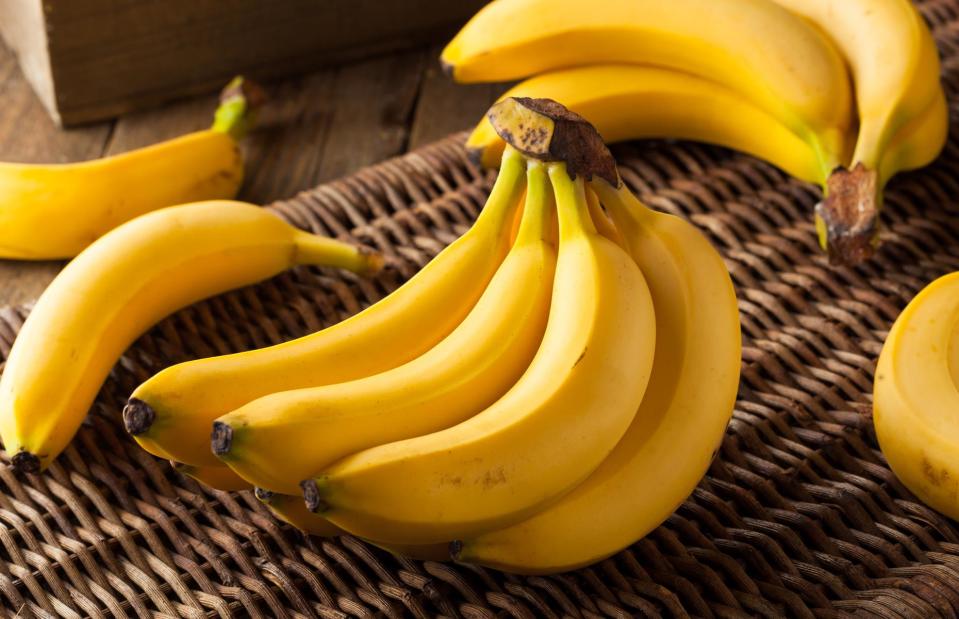
Brent Hofacker/Shutterstock
Warm temperatures of around 15-20°C (59-68°F) are needed for bananas to ripen correctly – and this process is halted when they're put in the fridge. When refrigerated, a banana's skin may also eventually turn black because of the impact the low temperature has on the fruit's cell walls.
Bread
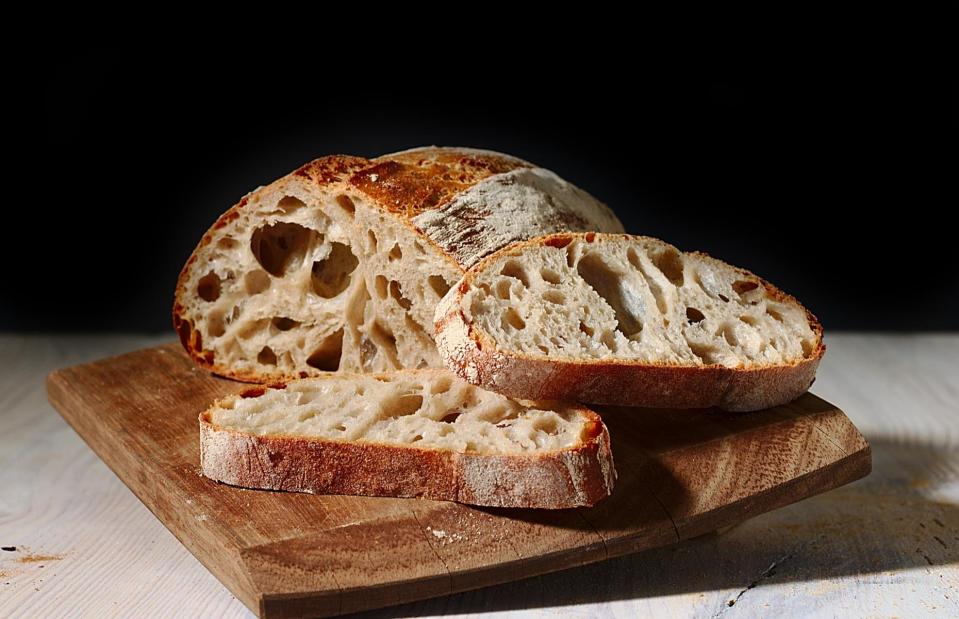
ronnythebaker/Shutterstock
If you're going to eat all your bread within a few days, keep it wrapped on the counter or in a bread bin – don't store it in the fridge. Cold temperatures change the structure of bread, making it taste stale. On the other hand, you can freeze bread if you want to use it over a few weeks, warming it through in the oven or popping slices straight into the toaster.
Butter
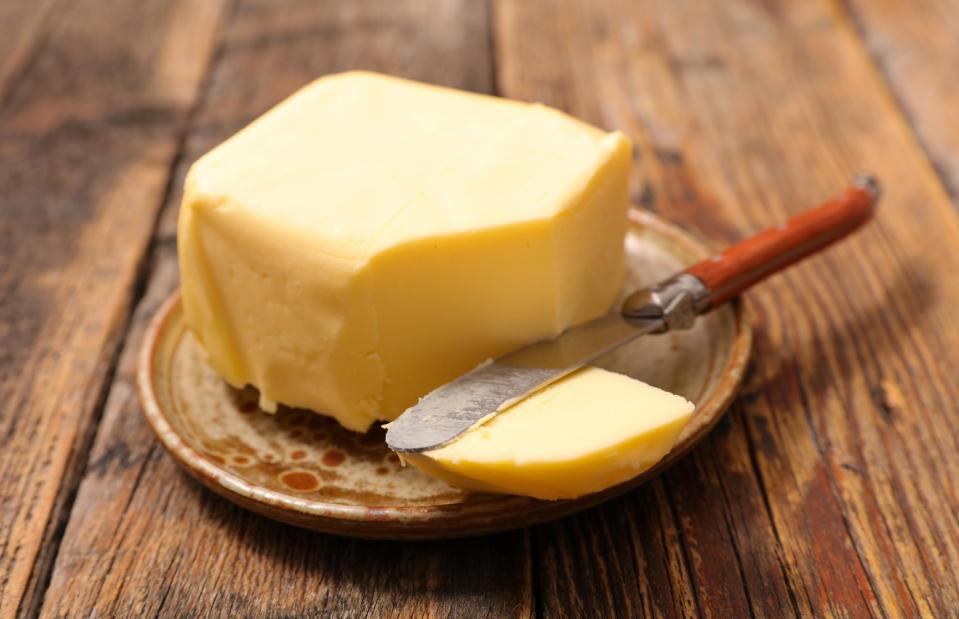
margouillat photo/Shutterstock
Butter is almost impossible to spread straight from the fridge – besides, it’s perfectly safe to keep it in a covered dish on a worktop for a few days. However, you don’t want it to melt or go off, so make sure the dish is stored somewhere cool and out of direct sunlight, especially in warmer weather. If you don’t plan to use your butter in the next few days, it’s best to keep it in the fridge.
Butternut squash
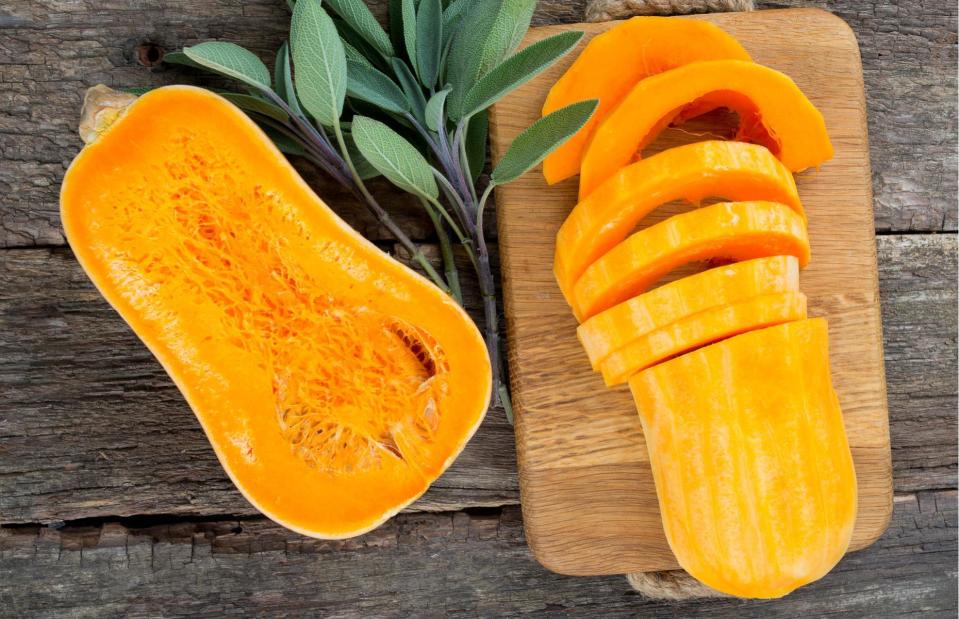
Diana Taliun/Shutterstock
The moisture from the fridge can impact this vegetable's quality, changing its texture and causing it to go off rapidly. A whole squash should be stored at room temperature on a shelf or countertop. Once cut, it can be placed in the fridge for around four days. Alternatively, you could dice the flesh, open freeze it on a tray, transfer it to a bag or container, then stash it in the freezer, ready to use in stews or soups.
Cake
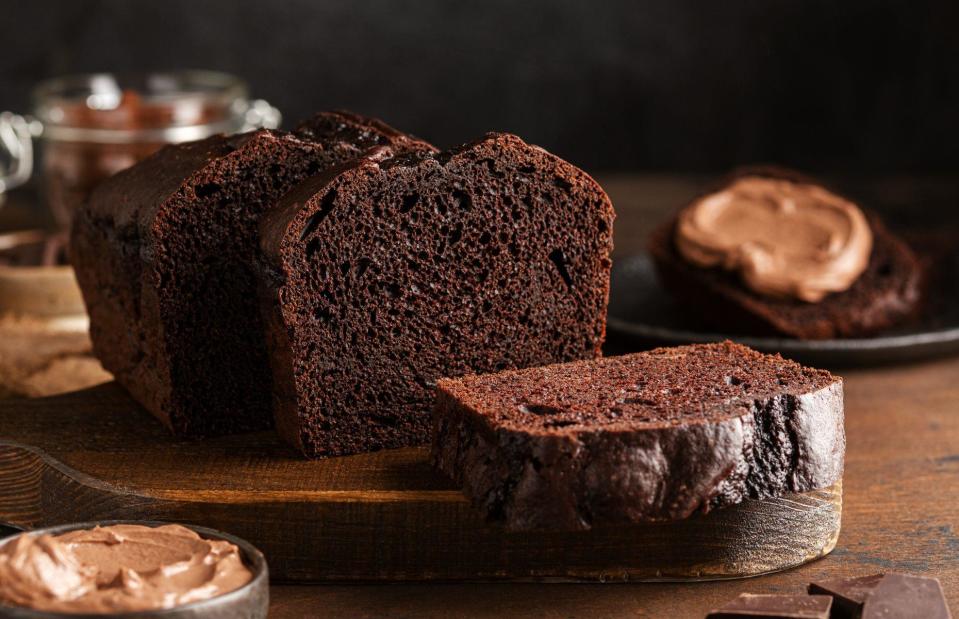
Alena_Kos/Shutterstock
Cake tastes much better when it's not cold from the fridge. To keep your cake fresh, you can secure it in an airtight container and leave it out on the side (away from direct sunlight) for three to seven days. Of course, if the cake is topped or filled with cream, you'll need to keep it refrigerated to ensure it stays fresher for longer.
Chocolate

Jiri Hera/Shutterstock
The fridge is the worst place for your chocolate bar or selection box; the temperature and moisture of the fridge can tamper with chocolate's taste, colour and texture. Chocolate (specifically the cocoa butter it contains) also absorbs the smell of surrounding food, so it’s best kept away from other odorous ingredients. Instead, stash your chocolate in a cool, dry place, keeping it in an airtight container once opened.
Chocolate spread
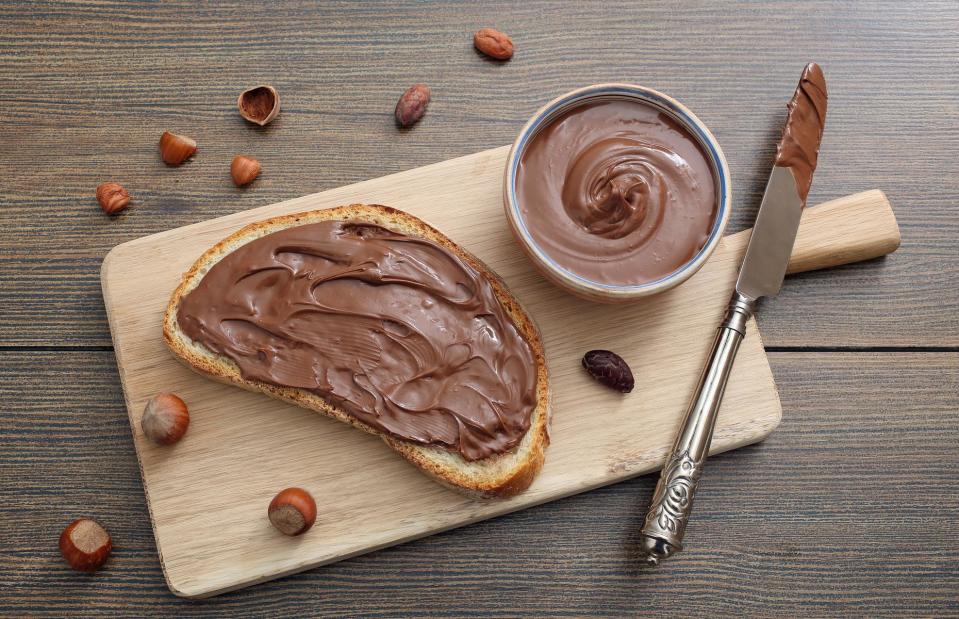
denio109/Shutterstock
This much-loved sweet condiment is delicious on toast, but it's much more difficult to spread if it's chilled. The chocolate flavour is also far more distinctive and 'open' when the jar is stored at room temperature, so make sure the lid is on tight and stow it in a cupboard.
Citrus fruits
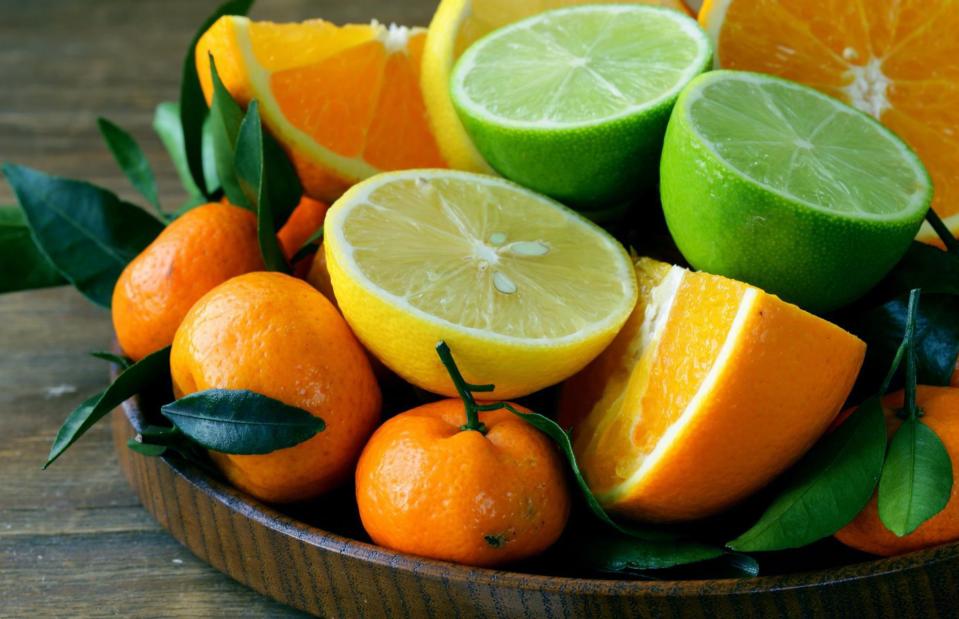
Henderbeth/Shutterstock
Citrus fruits are juicier and more flavourful when kept at room temperature. Store lemons, limes, grapefruit and oranges in a cool, dry space and consume them within a couple of weeks. However, if you want them to keep for longer, it makes sense to store them in a plastic bag in the fridge, ideally bringing them to room temperature before using or eating them. You can even stash citrus fruits in the freezer – just slice and open freeze them on a tray before transferring them to a suitable bag or container, or freeze the juice in ice cube trays.
Coffee
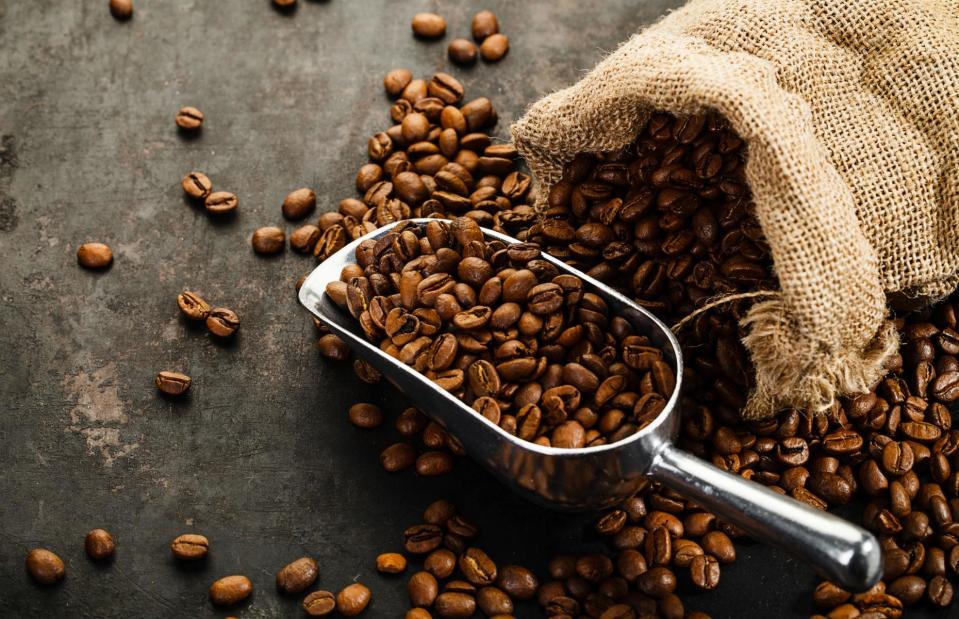
Ilja Generalov/Shutterstock
Coffee absorbs moisture and naturally takes on the smell of the ingredients around it, so the fridge can damage its flavour and texture. Once opened, keep your coffee grounds or beans in an airtight container and store them in a cool, dark place at room temperature. This way, your coffee will stay fresh until the time comes to brew it.
Cucumber

Image: P A/Shutterstock
Believe it or not, cucumbers can be stored on the countertop and will last for a week at room temperature when uncut. Rather than just adding a cool note to salads, they’ll actually have a little more flavour this way. Once you’ve cut into your cucumber, though, you’ll want to store it in the fridge to ensure the moisture remains locked in.
Dried fruit
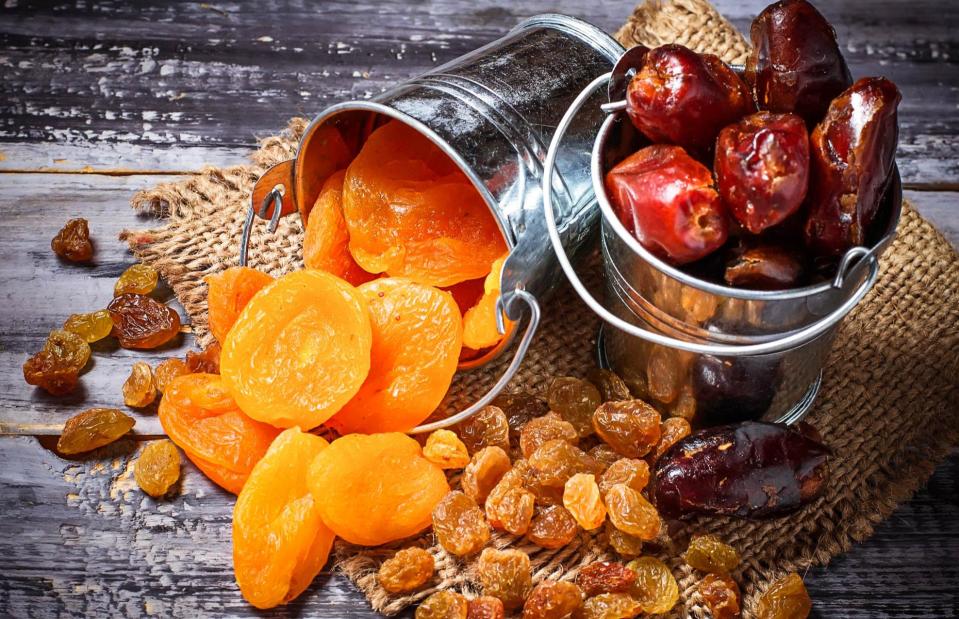
Yulia Furman/Shutterstock
Putting dried fruit in the fridge will only add unwanted moisture. Raisins, prunes, dried apricots and the like are best stored in an airtight container somewhere dry and dark – when kept like this, they can last for up to six months. Dried fruit can also be stashed in the freezer in a tightly sealed bag or lidded box.
Dried spices
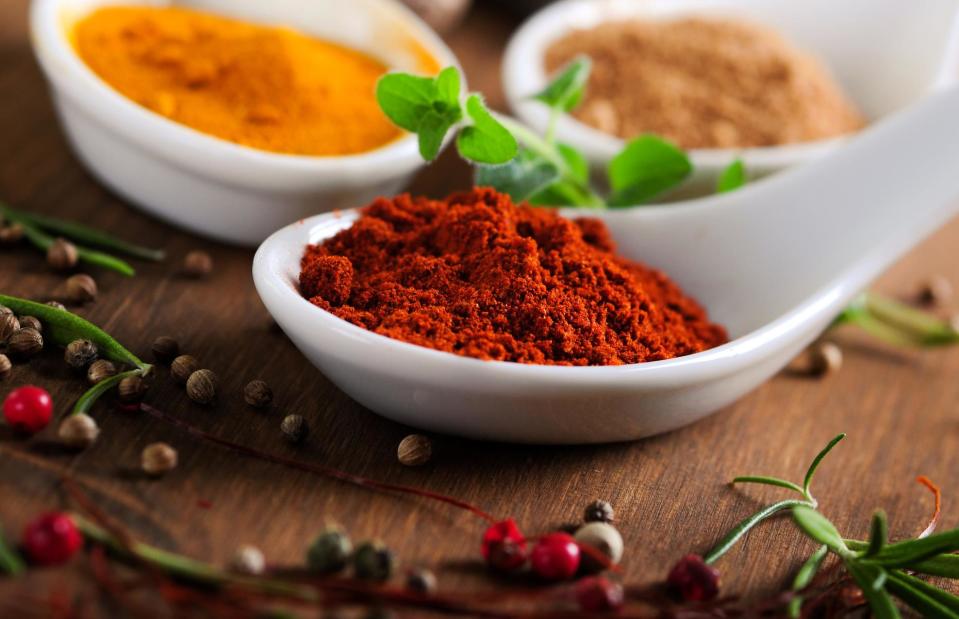
aliasemma/Shutterstock
The fridge really is the enemy of dried spice, as unwanted condensation is likely to get in every time you remove and use it. To maximise the shelf life of dried spices, store them in a dark, dry place and keep them away from extreme heat. It’s also worth having a regular clear out when it comes to spices – those that have been lurking in your cupboard for more than a year may well have lost their flavour and aroma.
Eggs
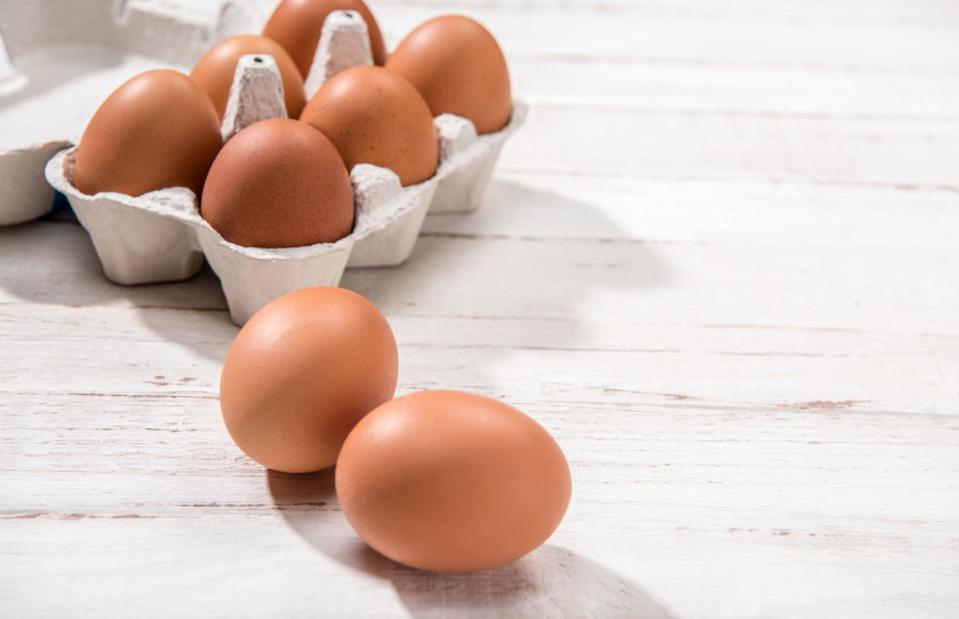
Lightfield Studios/Shutterstock
Whether or not eggs should be stored in the fridge depends on where you live. In the US, eggs are sterilised after production to kill bacteria (which also weakens the eggshell) and must be kept cool to prevent it from returning – therefore, the official guidance is to keep them in the fridge. However, in Europe, they're not sterilised, so the shell provides a strong barrier. As a result, European eggs are better stored in a bowl or carton on your countertop.
Fish sauce

JEWnnn_YEEpld/Shutterstock
This handy kitchen staple is used to add a distinctive umami flavour to many Asian dishes – and thanks to its high salt content, it doesn’t need refrigerating (in fact, salt crystals can form if it's kept in the fridge). To ensure your fish sauce lasts, it’s best stored in a cool cupboard, away from extreme heat.
Fresh soft herbs
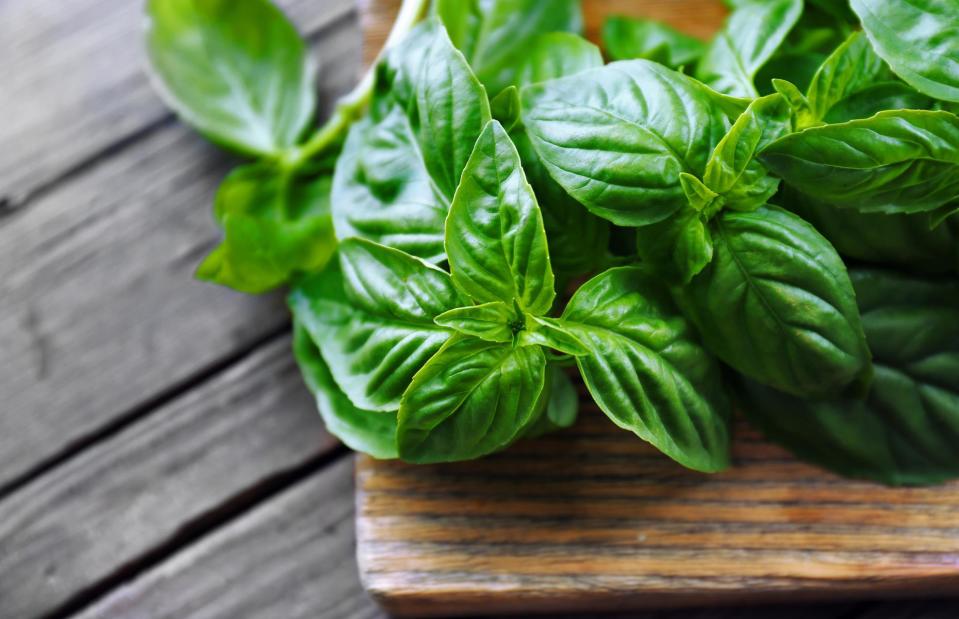
Africa Studio/Shutterstock
Soft herbs like basil, coriander, mint, parsley and dill should be treated like bunches of flowers – trim the stems and keep them in a glass with fresh water. If confined to the fridge, the leaves will wilt and quickly become soggy. However, harder, tougher herbs such as rosemary, thyme, sage and oregano should be wrapped in a paper towel and stored in an airtight container in the fridge.
Garlic
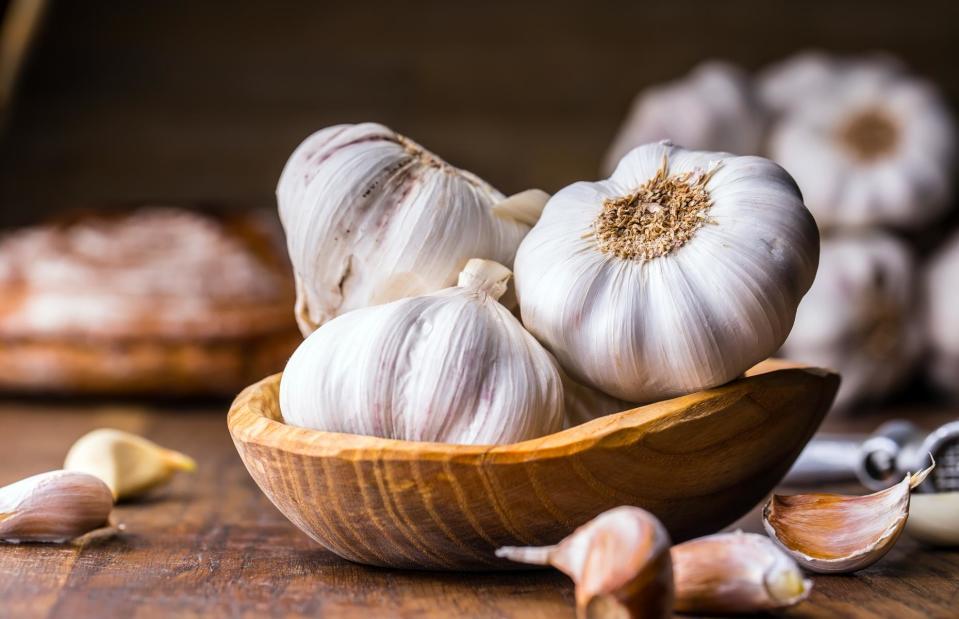
Marian Weyo/Shutterstock
Unless it's already peeled and prepared, garlic deteriorates at a quicker pace when it's stored in the fridge (all thanks to the added moisture). It's best kept at room temperature in a dry place with good air circulation, away from light. The bulbs will also last longer if left whole.
Honey
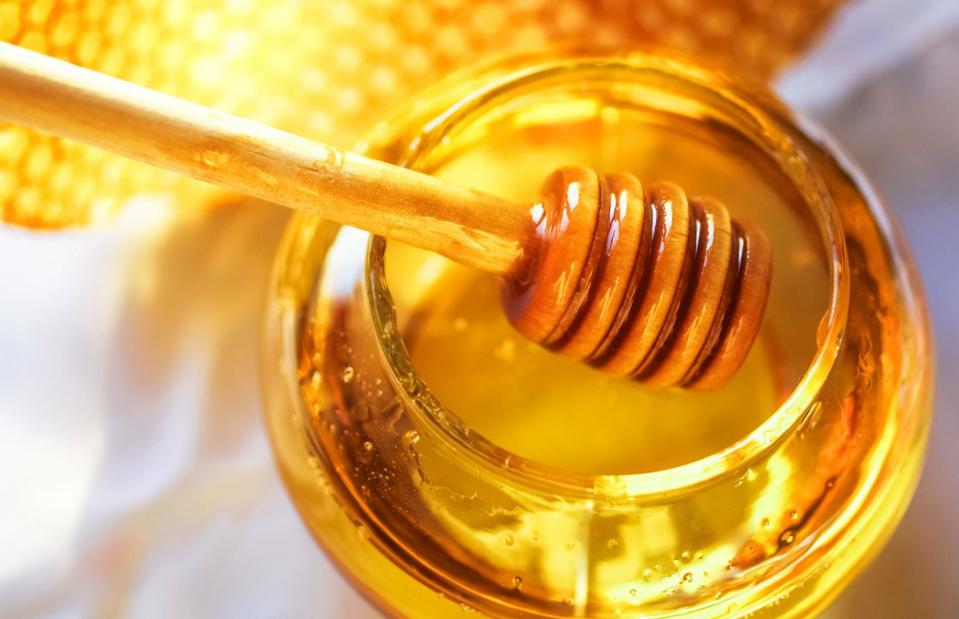
Repina Valeriya/Shutterstock
Unless you really want to wrestle with it, avoid leaving honey in the fridge. There's no real benefit – and the low temperatures will cause it to crystallise and solidify. Instead, it's best kept at room temperature to avoid any changes in taste and texture. If you can, store your honey in a cupboard between uses, away from direct sunlight.
Hot sauce
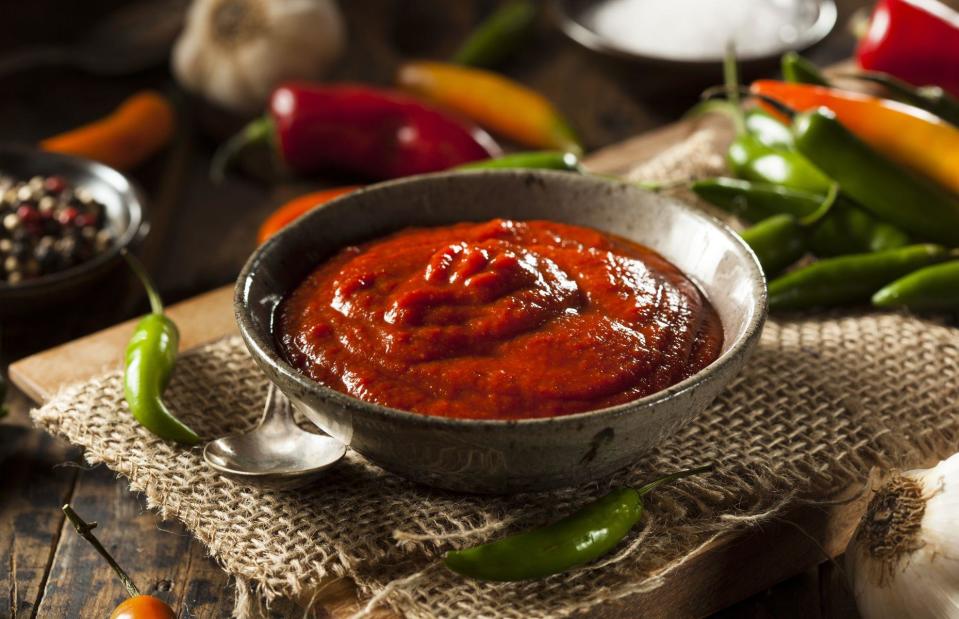
Brent Hofacker/Shutterstock
Been keeping your hot sauce in the fridge? There's really no need. It's usually full of vinegar, which will prevent any bacterial growth. Like with many other foods, its flavour will be stronger (and the heat of the chilli more potent) if kept at room temperature. Some brands do recommend keeping their sauces chilled once opened, though, so do check the label to be sure.
Jam

Zaitsava Olga/Shutterstock
Providing jam is properly sealed in a sterilised jar, it can be stored outside the fridge for up to two years. Once it’s opened, jam should be kept in the fridge to prevent mould from growing. However, if you're unsure, always read the label on individual jam jars.
Kiwis

Nitr/Shutterstock
Packed with antioxidants, serotonin and B vitamins to help you sleep, the kiwi is something of a wonder fruit. Thankfully, it’s also very easy to keep from spoiling; it's best stored at room temperature to ripen. Once ripe, you can pop your kiwis in the fridge to prevent them from going off.
Lard
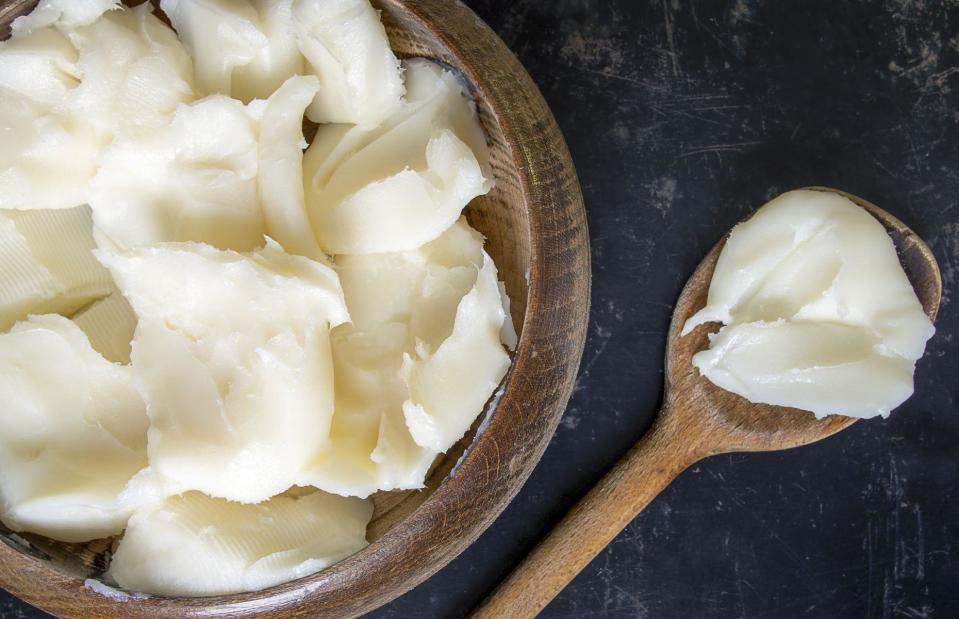
MarkoBr/Shutterstock
Dating back centuries, lard has been around for much longer than the household fridge. Much like butter, lard can be kept out on the countertop, and for much longer than its dairy counterpart (up to six months). If you’re not going to use it regularly, it's best to keep lard in the fridge – or even in the freezer, where it’ll last for up to 12 months.
Mangoes
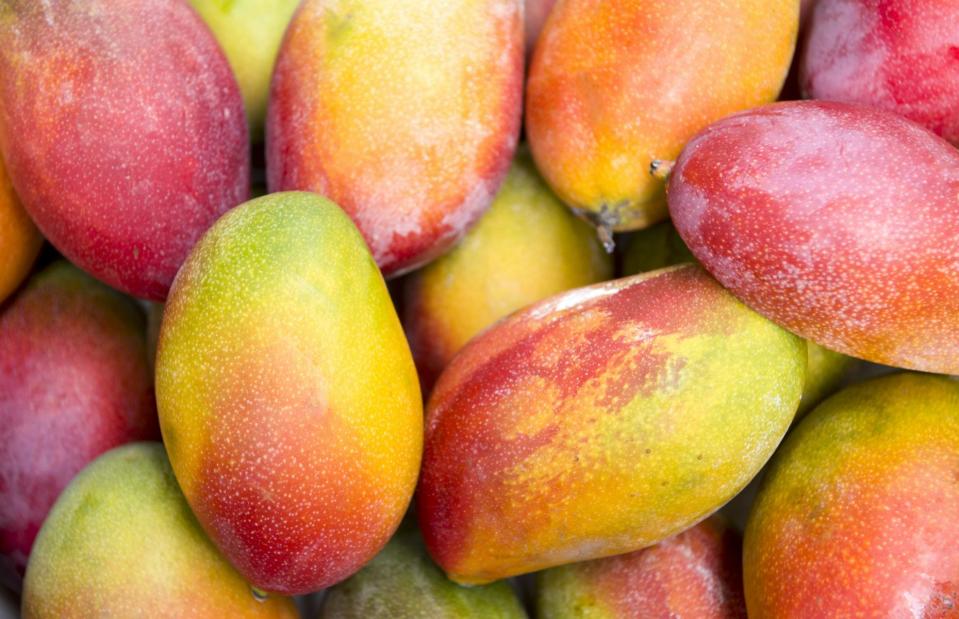
lazyllama/Shutterstock
Like many other fruits, unripe mangoes are best stored at room temperature, as the cold slows down the ripening process. They can be placed in a plastic bag and refrigerated once soft. This way, the fruit will last for longer – it should be good to eat for around five days after ripening.
Melons
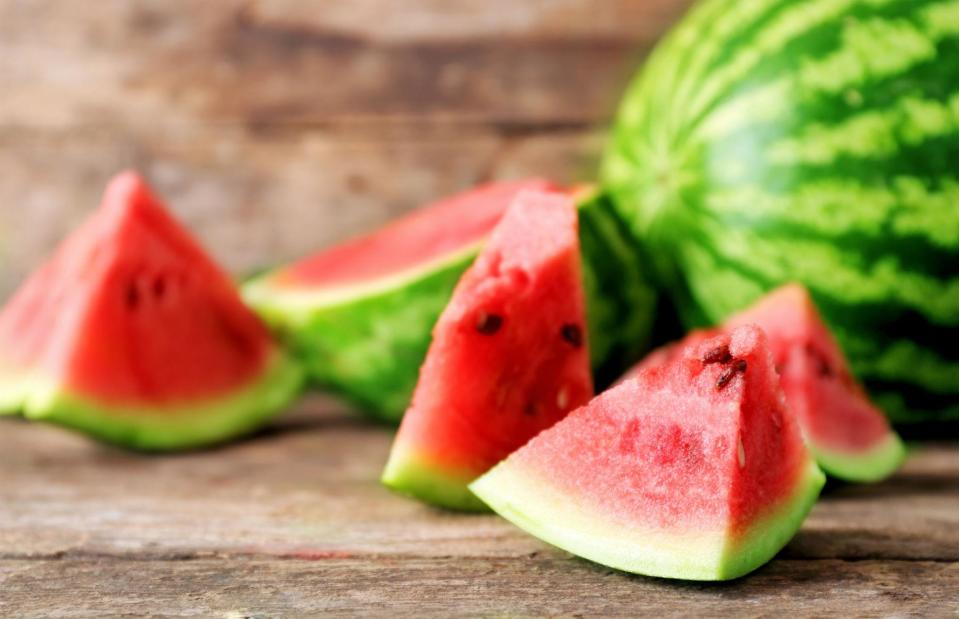
Repina Valeriya/Shutterstock
Unripe whole melons can be kept out of the fridge. The cold of the fridge has very little impact on the freshness of the fruit, and leaving such a sizeable item out saves valuable space. If you love biting into ice-cold watermelon slices, cut your fruit into pieces and transfer them to the fridge for an hour or so before serving. Once cut, melon should be stored in the fridge.
Mustard

Mouse Family/Shutterstock
Whether you enjoy it slathered on a hot dog or you use it to add richness to a sauce, mustard doesn’t need to take up space in your fridge. Thanks to acidic ingredients like vinegar and salt, the condiment can be left in your kitchen cupboard between uses. However, if you like your mustard on the fierier side, keeping it in the fridge will help to preserve its intense flavour.
Olive oil
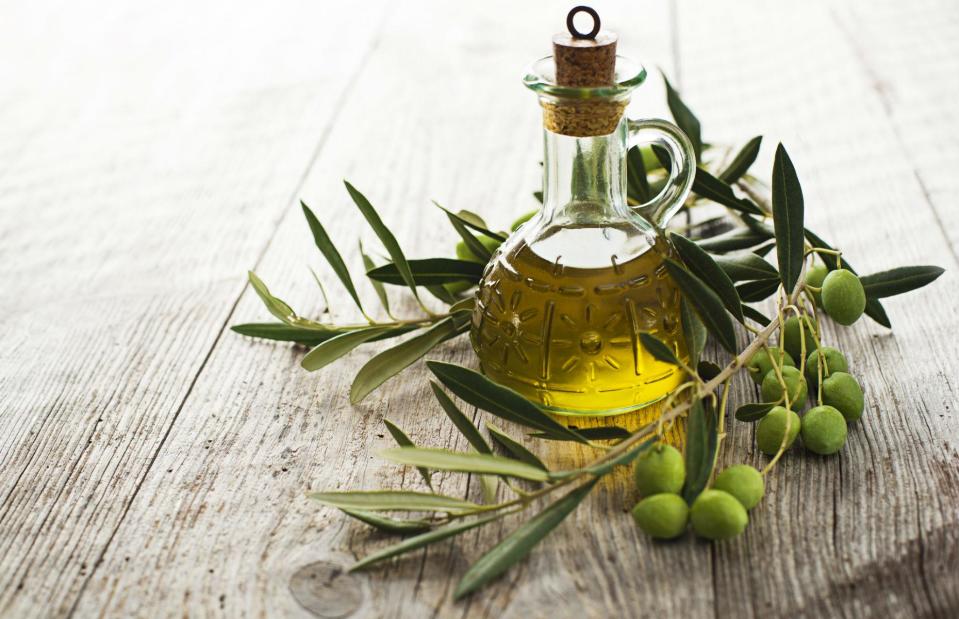
DUSAN ZIDAR/Shutterstock
Storing oils in the fridge can cause them to become cloudy and grainy – and in some cases, they'll solidify. Keeping oils at room temperature maintains their colour and consistency. However, olive oil does tend to deteriorate quickly when exposed to high temperatures or sunlight, so keeping it in a cool, dark place like a cupboard is better than leaving it out on the worktop.
Onions

Volodymyr Plysiuk/Shutterstock
Whole onions should ideally be kept in a cool, dark place, away from direct sunlight. They contain starch, so they'll become damp and soggy – and ultimately spoil – if left in the fridge for too long. If you have leftover cut onions, they should be stored in a sealed container in the fridge and used within a day or two.
Passion fruit

Valentyn Volkov/Shutterstock
Another delicious fruit packed with fibre and antioxidants, passion fruit are easy to look after. For maximum taste, the oval fruit should be left out on the kitchen counter to ripen for a few days before consuming. If you aren’t using the fruits straight away once ripe, move them to the fridge to prevent them from spoiling.
Pastries
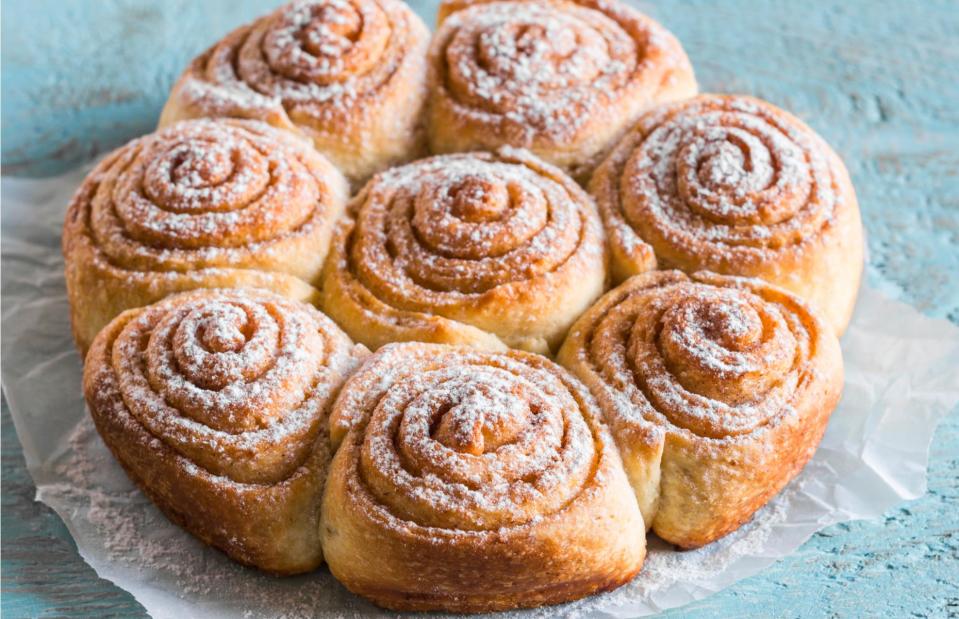
Kiian Oksana/Shutterstock
To keep them at their tastiest, pastries are best stored in a paper bag at room temperature. If you place your baked treats in the fridge, the inevitable condensation can compromise their texture, leaving them limp and soggy. If you want to keep them for longer, pastries can be stored in the freezer until you're ready to thaw, reheat and enjoy.
Peaches
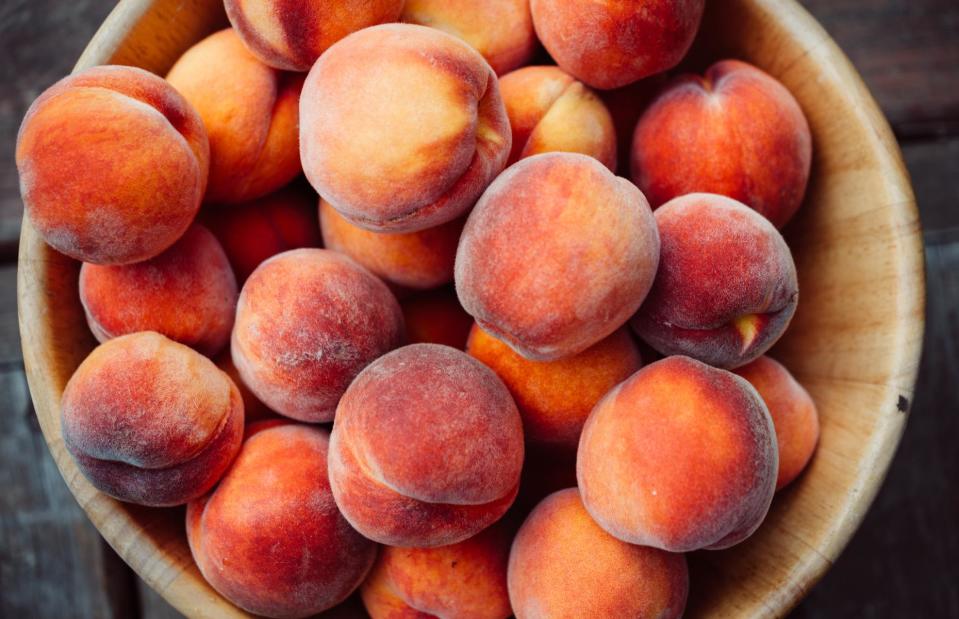
PNPImages/Shutterstock
Don’t be tempted to slip fresh peaches into the fridge if they’re not yet ripe and ready. Like with many other stone fruits, cold temperatures hinder peaches' ripening process, meaning you’ll have to wait for longer before enjoying the fruit at its finest. Peaches are also more likely to spoil and dry out in the fridge, so keep them in the fruit bowl instead.
Peanut butter
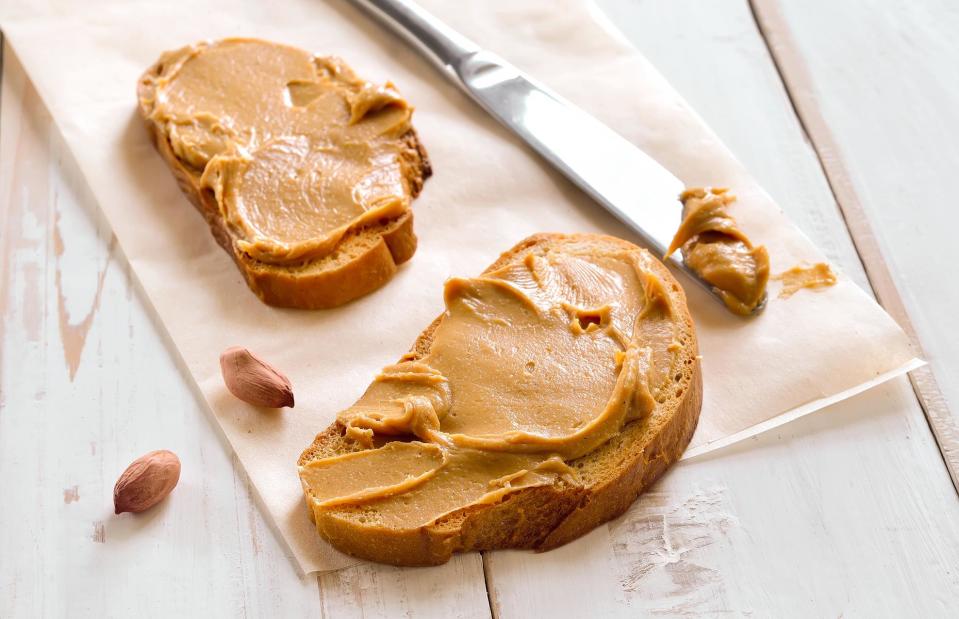
Fortyforks/Shutterstock
Processed peanut butter can become hard and stodgy in the fridge, meaning spreading a layer of the stuff on your toast will be an arduous task. When it comes to natural peanut butter, though, it’s more of a grey area. The spread may last for longer when kept in the fridge, but the oils can separate – and cooler temperatures will make it harder to mix the product back to the right consistency. On balance, your peanut butter will be more flavourful if stored at room temperature. Once opened, it'll be fine left in the cupboard for around six months.
Pears
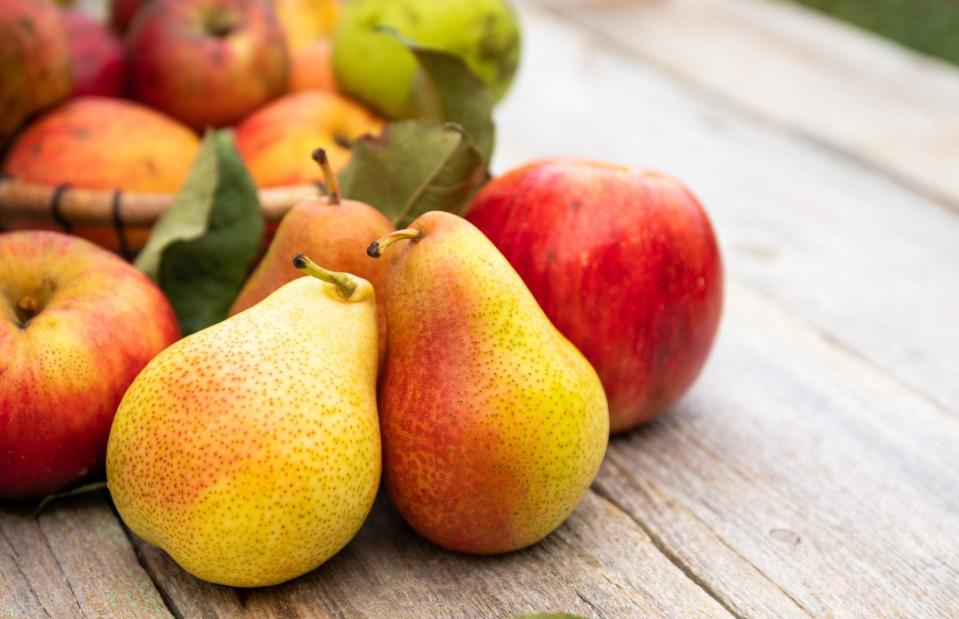
Ekaterina Kokoreva/Shutterstock
Whether plucked from a tree or picked up from a shop or market stall, pears tend to be quite hard and often require ripening at home. With that in mind, it's best to leave them out at room temperature to speed up the process. Once they're as ripe as you want them to be, you can then keep them in the fridge.
Pickled vegetables
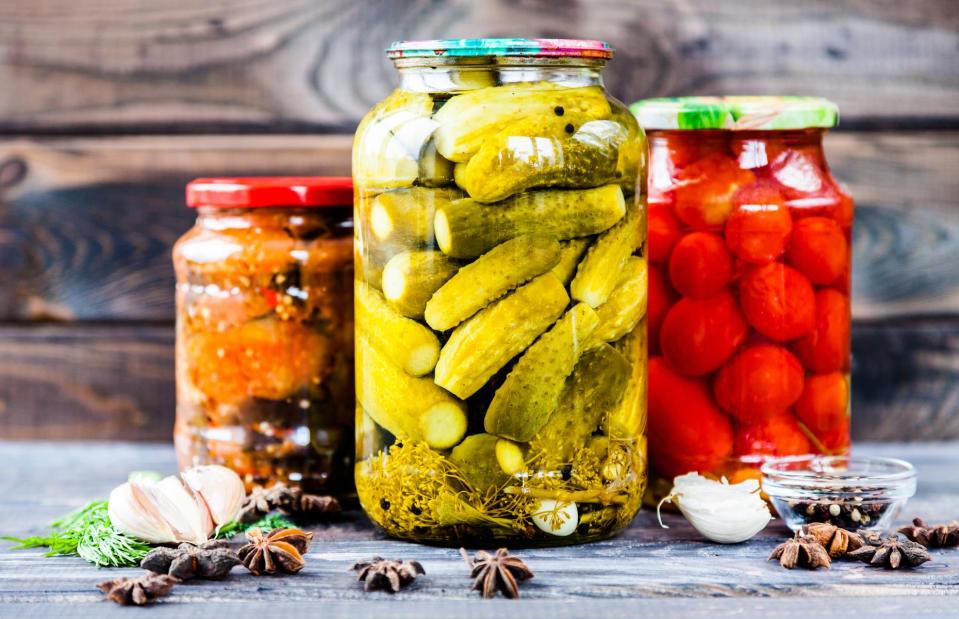
Ekaterina SU/Shutterstock
As long as you haven't contaminated the jar with a dirty spoon, the preservatives used in manufactured pickles mean they should last just fine in the cupboard, freeing up precious fridge space. Make sure the lid is tight, and check the date on the jar (plus any specific instructions on the label). However, if you're storing fermented pickles (or if you've pickled your own vegetables), these are best kept in the fridge.
Pineapple
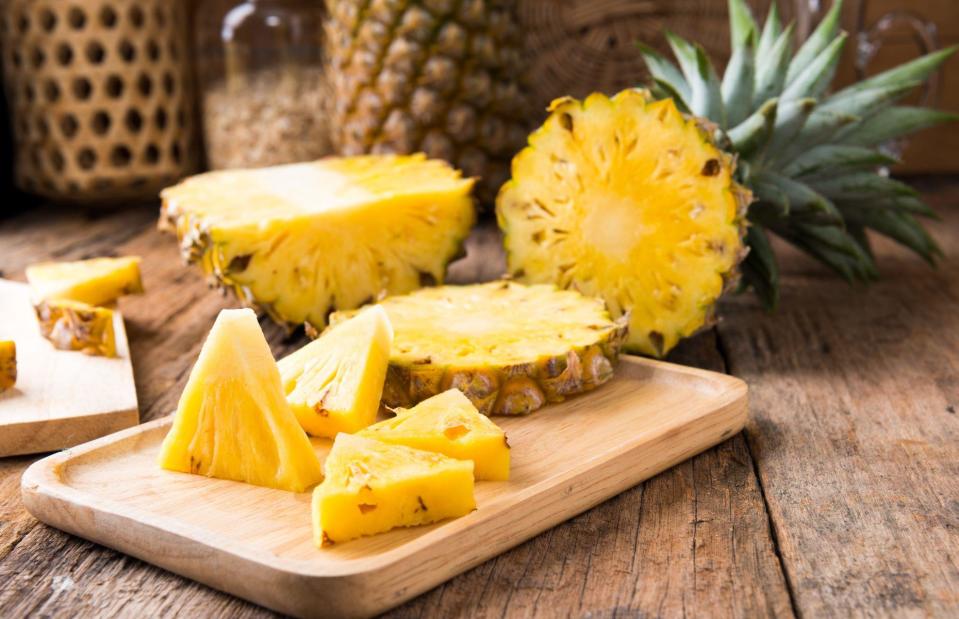
Regreto/Shutterstock
Like with many fruits, if you want to ripen a pineapple, it’s best to keep it on the counter at room temperature until it's as ripe (and sweet) as you like it. However, if you need to slow down the ripening process, or if you’ve already cut into the fruit, you should keep it in the fridge.
Potatoes
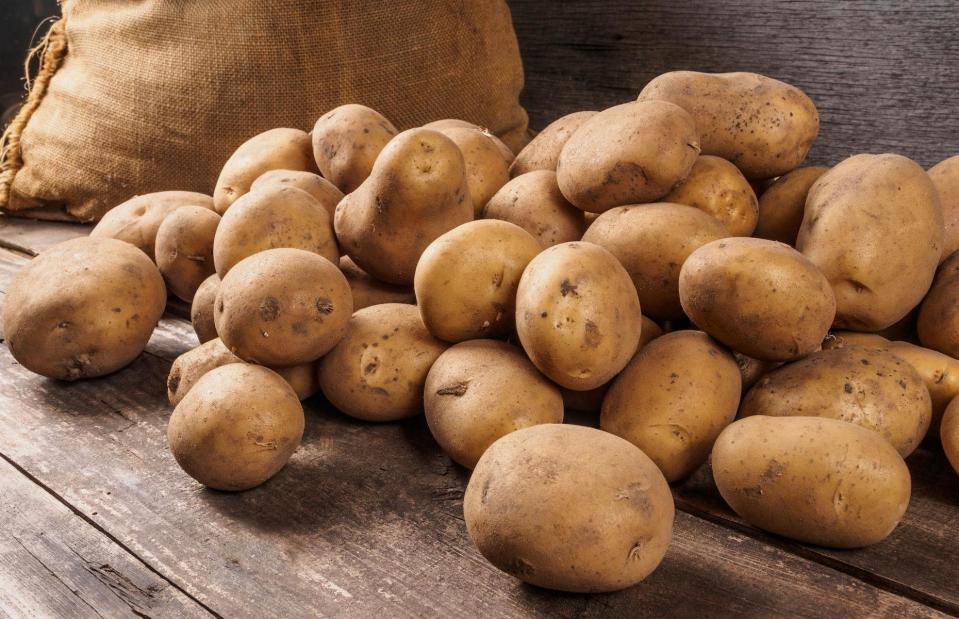
Dmitriy Gutkovskiy/Shutterstock
Cold temperatures can turn the starch in potatoes into sugar, leaving them discoloured and tasteless. Potatoes should be stored unwashed and at room temperature, in a spot far away from any sunlight. If possible, keep them in a burlap sack until you're ready to use them. Note that potatoes release ethylene gas, which can make other fresh ingredients ripen too quickly – so they're best kept separately, if possible.
Pumpkins
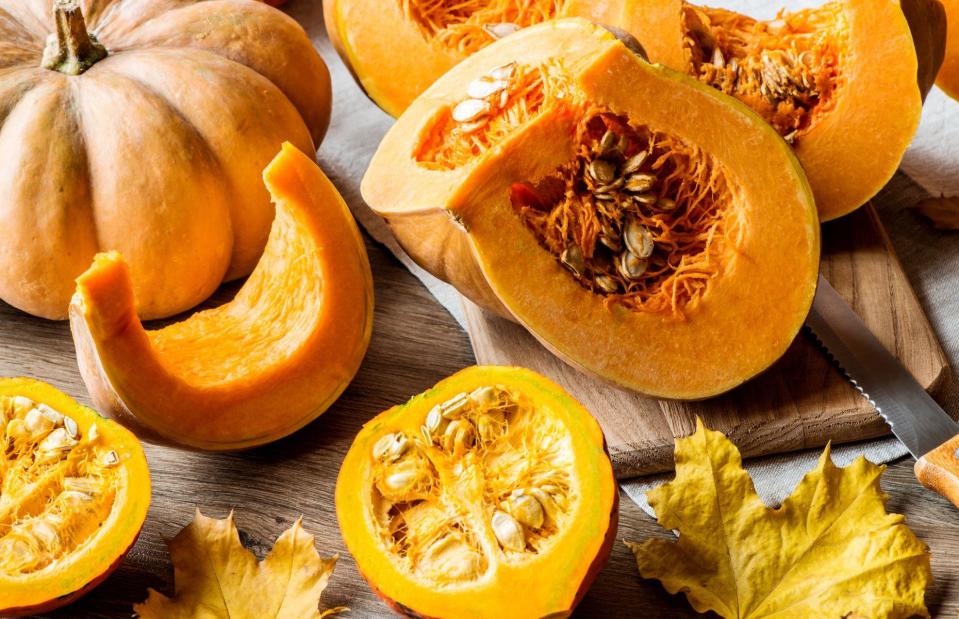
RONEDYA/Shutterstock
Pumpkins should first be left to 'cure' in sunlight, ideally on a well-lit windowsill, to toughen their skin and keep them fresh. Then, they should be stored in a dark, dry and well-ventilated area that's no colder than 10°C (50°F). Leaving them in the fridge will cause them to go bad faster; cured, properly stored pumpkins can last for up to six months.
Soy sauce
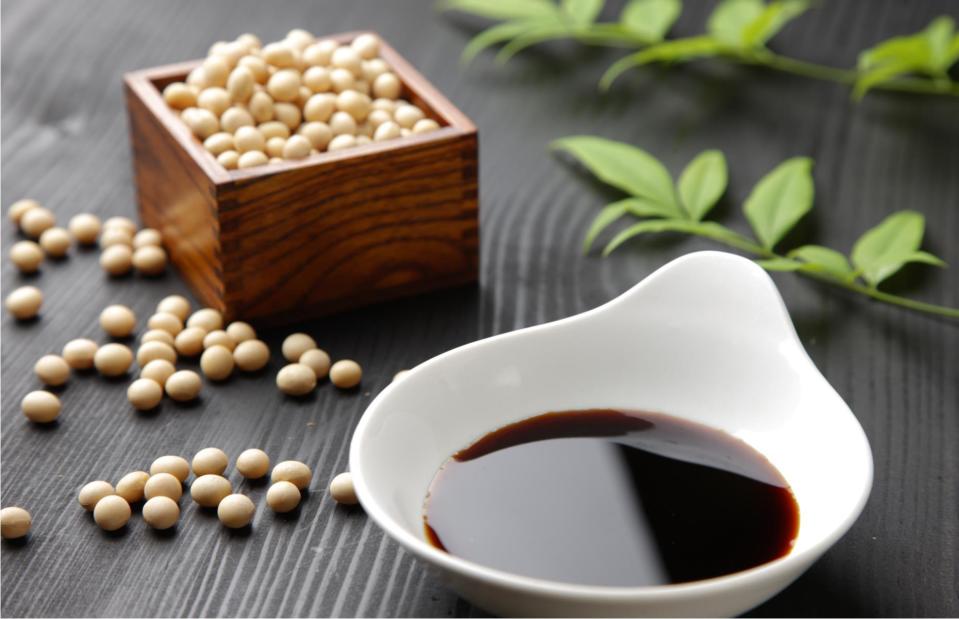
UV70/Shutterstock
The label on a bottle of soy sauce may state that it should be refrigerated, but restaurants safely leave the condiment out on tables all day long. The truth? Soy sauce's high salt content means it can be stored at room temperature for up to six months. If you aren’t using your soy sauce frequently, it’s fine to store it in the fridge to help preserve its flavour over a longer period.
Sweet potatoes

Brent Hofacker/Shutterstock
Like with potatoes, storing sweet potatoes in the fridge will change their chemical composition, altering their texture and flavour. Sweet potatoes should be stored in a cool, dark, well-ventilated cupboard. Once cooked, they can be kept in the fridge for around three to five days, or in the freezer for up to a year.
Tomatoes
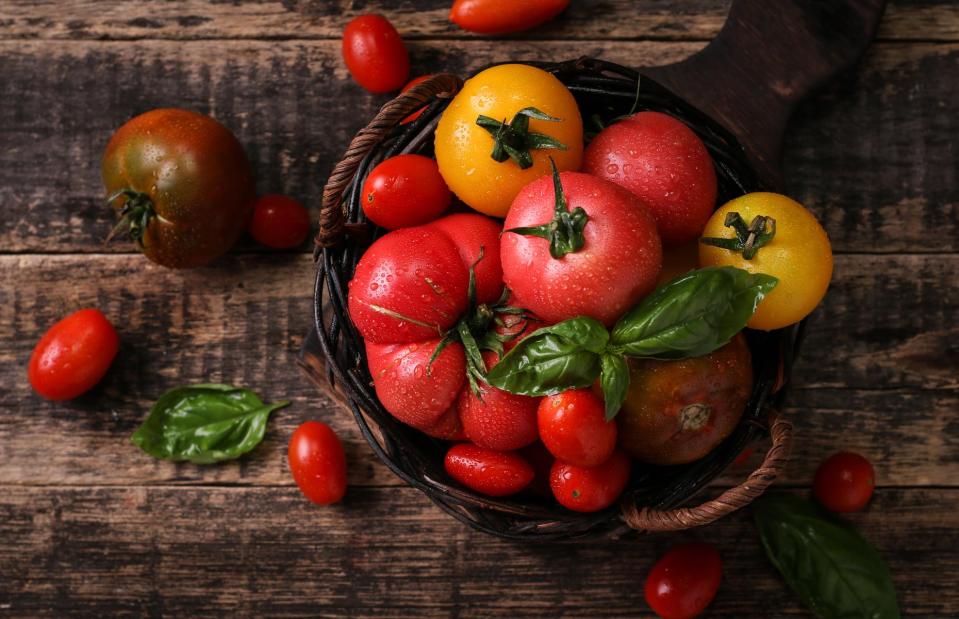
id-art/Shutterstock
Cool fridge temperatures damage tomatoes' membranes, causing them to become watery and mealy. Storing them in the fridge will also permanently dampen their flavour. With that in mind, the best place for tomatoes is out on a worktop. If you've got a glut of tomatoes, try making them into a soup, chutney or pasta sauce.
Tomato ketchup
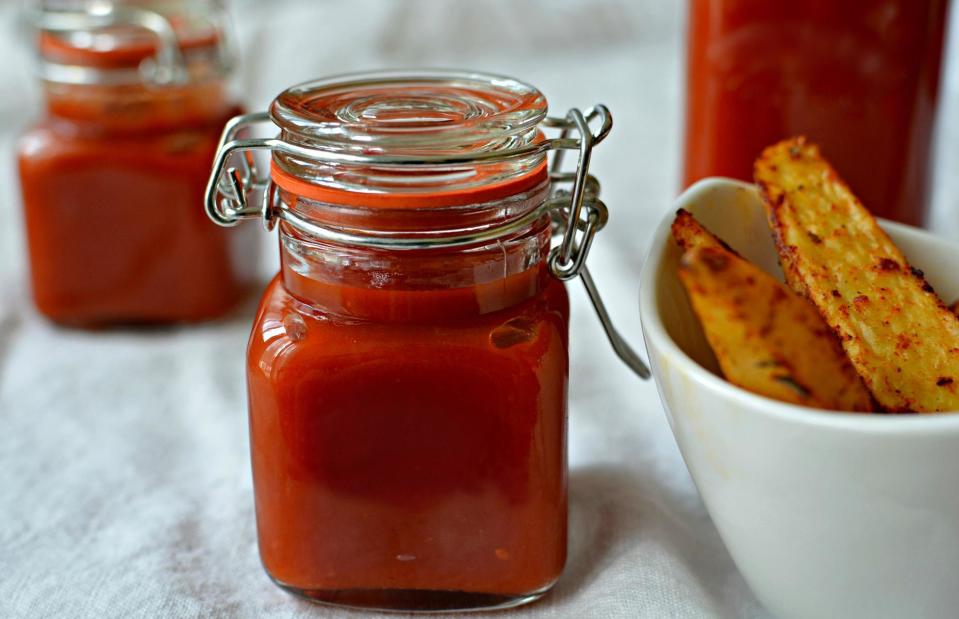
Eleonora Tuveri/Shutterstock
It's hotly debated whether ketchup should be stored in the cupboard or fridge, with even Heinz recommending that it should be refrigerated after opening. However, bottled ketchup was around years before refrigerators became commonplace. Thanks to its high vinegar, salt and sugar content, it’s perfectly safe to store ketchup at room temperature.


